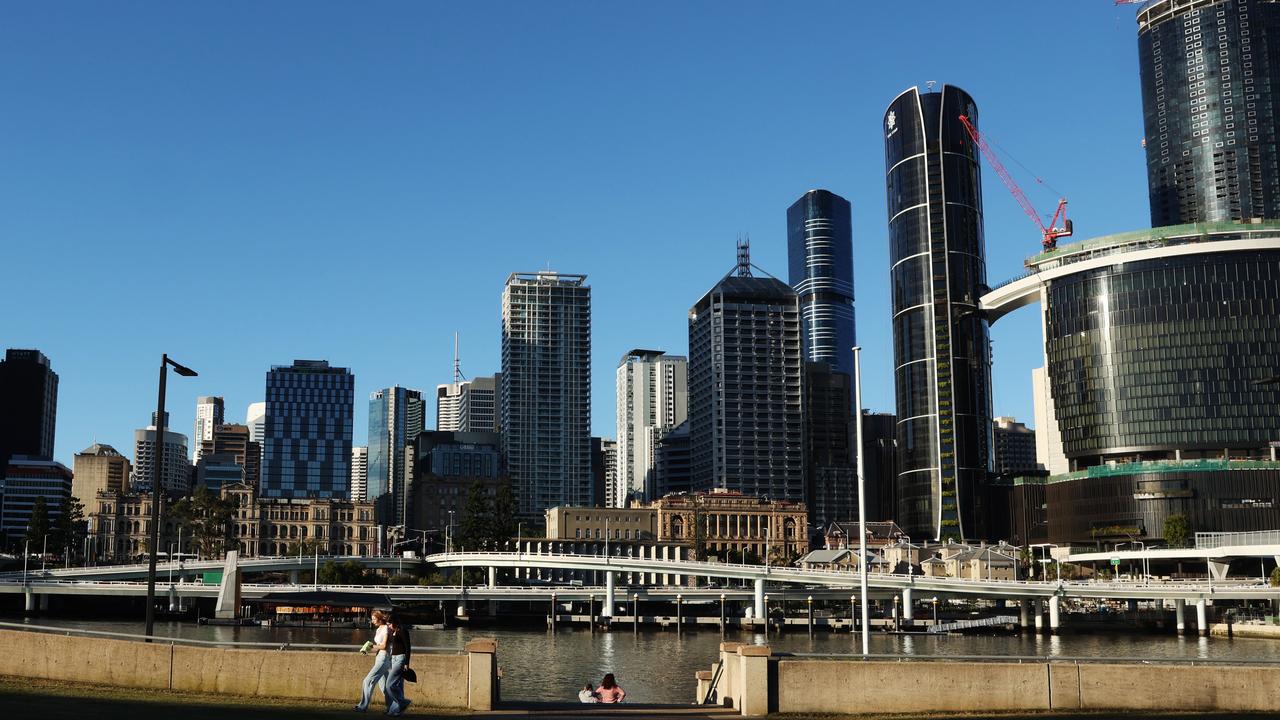Future Fund chair Peter Costello takes swipe at Reserve Bank on interest rate response
The former Federal Treasurer has called on the RBA to start raising interest rates and reverse the ‘rocket fuel’ that risks runaway inflation.

Future Fund chairman Peter Costello has hit out at the Reserve Bank for being too slow to consider raising interest rates, urging it to “get with the curve, rather than behind it.”
Speaking to a business summit in Sydney, the former Federal Treasurer criticised the Reserve Bank’s public assurances in the past that it would not consider raising interest rates until potentially as late as 2024.
Mr Costello said the current combination of very low interest rates in Australia, large fiscal deficits and a big bond buying program as “rocket fuel” for the economy.
He said the official cash rate was now the lowest it had ever been in its history at 0.1 per cent.
Mr Costello described the Reserve Bank’s bond buying program over the past two years as a “bond mine.”
“I don’t think people realise that the bond buying program the Reserve Bank has engaged with has been very large indeed,” he said.
It has led to the Reserve Bank tripling its balance sheet from about 10 per cent of GDP to the equivalent to 30 per cent of GDP.
“By world standards, this is very large,” he said.
“We have big fiscal deficits, very low cash rates, very large bond buying by the Reserve Bank.”
Mr Costello said the current situation of record low interest rates and high federal deficits was “absolute rocket fuel” for the economy.
He said this would have to be wound back as inflation picked up as it was now doing.
Mr Costello said there was a danger if both fiscal and monetary policy was too lose that policy makers would “run out of ammunition” if there was another economic crisis.
“This is the problem,” he said.
“How do you wind back if you are facing new challenges in the future?”
“The slower you do it, the more significant the (market) reaction will have to be,” he said.
Mr Costello said the current policy settings meant that policymakers were “out of ammunition” in the event of a new crisis.
He said the Reserve Bank had “consistently underestimated the path of inflation over the past year” and had a guidance that the cash rate would remain at 0.1 per cent until 2024.
“I don’t think it is going to be that,” he said.
He said the underlying inflation in Australia was already at 2.5 per cent and the Consumer Price Index was at 3.5 per cent.
Mr Costello said the Bank should have said it would hold rates at the current level as long as inflation levels were in line with its charter and “if inflation moves, we’ll adjust the rate.”
“But by saying we can hold it out until 2024 it is taking a position on inflation which has not proven right.”
He said it was now “trying to back away” from its previous stance.
Mr Costello said could see increased pressures on inflation in Australia with rising energy prices and labour market shortages.
“The bank has really got to change its rhetoric,” he said.
Mr Costello said it should now drop its promises on not increasing rates until 2024 and admit that rising inflationary pressures should mean there would need to be interest rate rises this year.
He said markets in Australia were already moving in to price increasing inflation and rising inflation.
“The Reserve has to get with the curve, rather than behind the curve.”
Mr Costello said the current policy of easy money in Australia and around the world would eventually reduce the rate of returns on investments in the future as policies tightened.
He said easy money brought forward economic growth but eventually the economy would have to adjust to a more “normal” monetary policy.
“Eventually, you have to adjust to normal conditions.
Mr Costello said this would mean that it would be harder to make the same strong returns by investing in shares and other assets.
“Investment returns over time are going to get much more difficult.”
“It’s going to affect equity markets, it’s going to affect investment funds, it’s going to affect the equity markets.”
ANU Professor and former Reserve Bank member, Warwick McKibbin, told the conference that the Reserve Bank should consider raising rates in the near future.
After years of overestimating inflation, Professor McKibbin said the bank was at risk of making a mistake by underestimating it.
He said the best time to raise rates was when the economy was growing strongly.
Mr McKibbin said there was now “too much liquidity” in the US economy.
The combination of low interest rates and big deficits would “drive a global interest rate cycle.”
The Australian born chief executive of US investment bank Morgan Stanley, James Gorman, who also spoke at the conference, also criticised the US Federal Reserve Board for being too slow in raising interest rates.
Mr Gorman said the Federal Reserve Board should have “squirrelled away” a few 25 basis point increases in interest rates before now to allow it to slowly tighten monetary policy in the face of rising inflation.
But he said the Fed was now having to wrestle with pressure to increase rates but not by so much that they “tipped the economy into recession.”
Mr Gorman said he expected that the Fed would raise interest rates “very methodically” over the next year or so, in increments of 25 basis points.
He expected that it would raise interest rates four times by the end of this year, taking its cash rate up by 100 basis points, with another one to three increases the following year.
“My guess is that they are going to be really steady (in increasing rates),“ he said.
Mr Gorman said interest rates around the world were now at some of their lowest levels ever while economies were continuing to grow quite strongly.
He said he agreed with Prime Minister Scott Morrison that it made no sense to further stimulate fiscal policy now the economy was strong and Covid was easing off.
Mr Gorman said he was a strong proponent of people coming back to work now that Covid was receding.
While things may not go back to five days a week, he said his view is that his staff should be in the office three to four days a week.
Mr Gorman said people being back in the office was important to help work teams “develop and grow.”
“We will never go back to the standard five days a week or sometimes six days a week in the office,” he said.
“That’s gone.”
But Mr Gorman said it was impossible for people to “fully develop their career” if they didn’t spend most of their working hours in the office.
“You have to have the exposure to other human beings.”
“You can’t get that from a screen.”







